
Is This The Healthiest Diet On Earth?

Diets that requires you to split hairs.
Diets that require you to analyze nutrient content and read each label for half an hour.
Diets that require you to reduce your calories (it doesn’t work).
Diets that have you find a new guru every week.
Diets that have you learn the science behind your own food.
Who in the hell has time to do all that? Who even wants to do that? And there’s another caveat — you’d think the more you know about science, the easier it’d get to know which foods are healthy for you and which are not. But it’s not — it gets more complicated because there’s a new study every week that contradicts another study from before.
Add that to the fact that one scientific study, by itself, doesn’t mean much (no matter how revolutionary) is a recipe for confusion.
Aghhhh.
But if you ask me, there is *for sure* a “worst” diet category in the world. “What is it?!” you may ask. Well, it’s this:
The diet that takes the most effort, energy, research, implementation and time.
You might be saying, “Well, that’s great news! I happen to find eating candy bars extremely easy and it doesn’t require much research!”
Shut up. You know what I’m talking about.
Remember a fundamental truth about dieting: whether you adhere to the diet is more important than the diet. The best tools in the world don’t mean anything if you don’t use them.
That’s why one of the main things I emphasize here is the psychology behind change and the formation of good habits (and the changing of bad ones).
When it comes to health and fitness everyone knows what to do. The amount of overweight people I’ve run into that know they need to lose weight and even semi-accurately know what they should be eating (but they don’t do it) is astounding. Really, freaking mind blowing.
Table of Contents (Choose Your Own Adventure)
- Why Do People Know What They Should do – But Don’t Do it? The Information-Action Gap
- The Simplest Way to Eat the Right Food & Lose Weight – All in One
- So What Do I Eat? (Click for Awesome Infographic)
- No Starvation, No Calorie Counting, No Hunger.
- Eat Food When You Want to (And Still Lose Weight)
- I’ve Tried Diets Before & Failed – That’s OK – Here’s How to Stick to Anything Like a Pro
- The 5 Key Actions That Will Change Everything
Why Do People Know What They Should do, But Don’t Do it!?
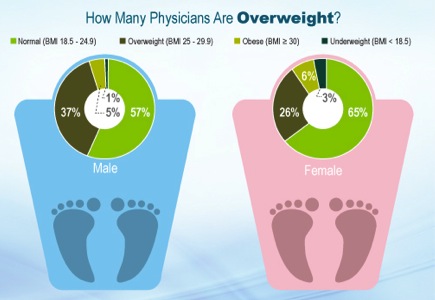
Almost 40% of Physicians are Overweight – Medscape
Did you know that almost 40% of doctors are overweight? This is pretty much exactly along the lines of the general weight statistics in the USA – 40% of men and 29% of women are overweight (and a small percent are obese).
And you know what’s interesting? Some recent publicity has come around showing that overweight doctors are less likely than “normal weight” doctors to talk about diet with their overweight patients. MIND BLOWN.
The Knowledge-Action gap
There’s an interesting phenomenon that exists in the world, which is this: Even if you gave people the exact step-by-step process to get fit and healthy or build a million dollar business, almost no one would do it.
Even with all of the information, very few people achieve the desired result. The path is there, all they have to do is take it. This is the reason why many physicians are overweight (see above – 40%) — they know what they should be doing, they’re doctors! But they don’t do it. So why not?
- Poor (or no) systems put into place, aka bad habits already in existence
- Resistance – when we see months and months of “hard work” ahead of us, we shrink back down into our chair and feel small. It’s easier to talk about what to do than actually do it.
- Laziness (which is usually #1 & #2 disguised)
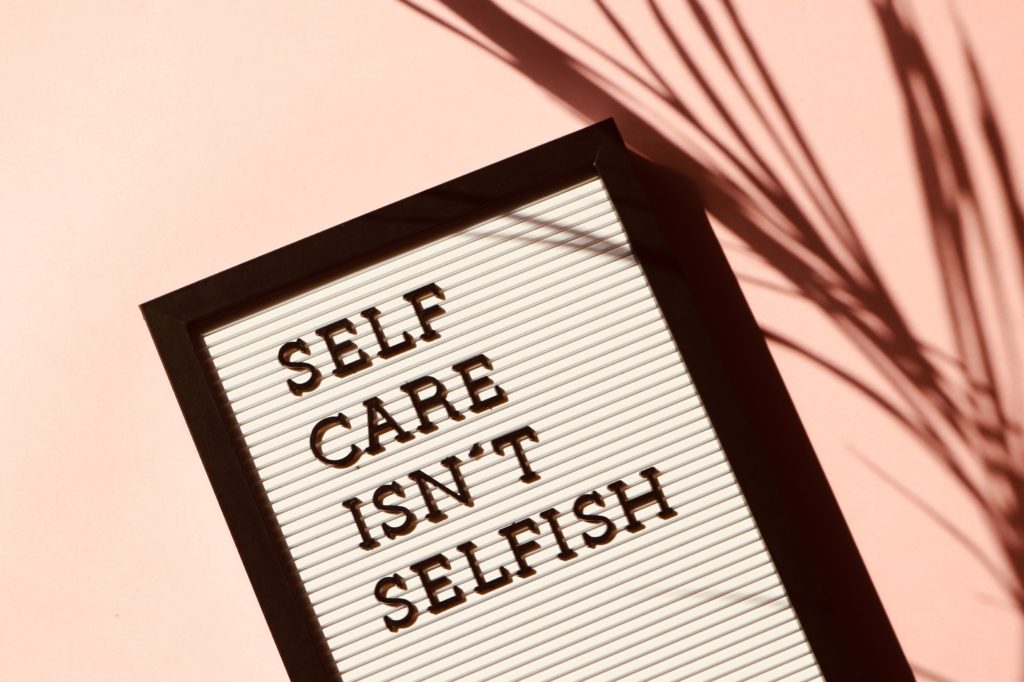
#1 No systems put into place, aka bad habits that are already in existence.
By far the vast majority of people don’t do what they should (even if they know what to do) because of bad habits. Look at the majority of dieters — we know we shouldn’t be eating chocolate cake and Oreos but we do it. Why? Cravings, bad habits, or we say “just this time..”
Business owners that have been in stale businesses for years do the same thing. They know they need to get out there and attend conferences, or try applying some new-found knowledge, or testing out business systems – but they don’t. Why? Every Monday morning they show up and do the same thing – check emails, go through spreadsheets, maintain the business, do a little bit of outreach.
They don’t put new systems in place. Monday-Friday happens by itself. Habits unfold whether or not we want them to – we’re programmed to do them.
#2 Resistance
This is an subject that few people talk about that more people should know about. Many times we know what to do but we don’t do it because of thinking something along the lines of this:
- “I know I need to go on a diet”
- “Alright let’s do some research…” (Does some research)
- “Wow that’s a lot of information” (Feeling overwhelmed)
- “Damn this is going to be a lot of work” (Feeling discouraged)
- “Alright.. let’s do something today…” (Half-assing it)
- …. And then a week later the person gives up
Resistance is basically a psychological issue — anytime we see a long road ahead of us, full of work and effort and time, we encounter massive resistance to it.
So how do you fight it?
- First, you don’t ever think about the future. You do what it takes to fix things now. Thinking about the future process only builds resistance.
- Second you learn all about creating good habits (when you program yourself they become effortless).
- Third, you emphasize taking action over collecting more knowledge
- Fourth, you take action every day (no matter how small)
These two bad boys: lacking systems (having bad habits), and resistance, are the main reasons why people know what they should do, but don’t do it.
So now let me show you exactly what you need to know, and then how to do it.
The Simplest Way to Eat the Right Food & Lose Weight All in One
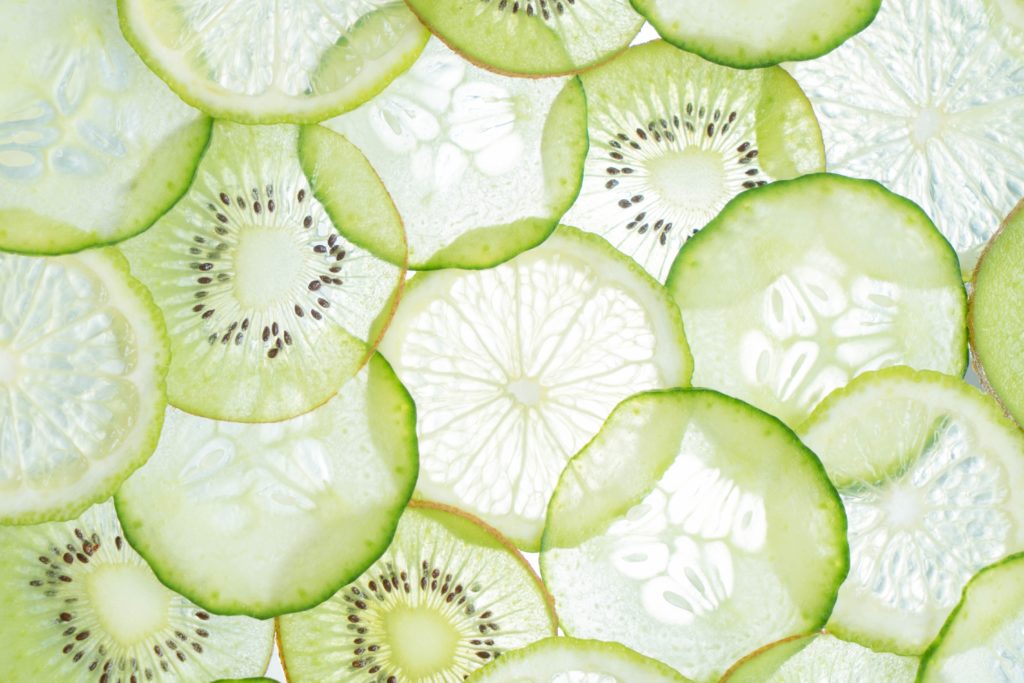
One thing I promise I will not do to you is this:
Break down every nutrient, supplement, and tiny insignificant change you can make to your diet or lifestyle to live to the ripe old age of 135.
You won’t usually see me talk about Vitamin D, Vitamin C, B12, or other forms of supplementation. And although I cite lots of scientific resources, I’m not going to nit pick and go through 53 scientific journals just to support one point.
Why not?
#1 It’s a waste of time
I focus on giving you the maximal return for minimal work. I emphasize creating good habits instead of investing tons of effort and using willpower and being disciplined.
I focus on those big wins — correcting 80% of your lifestyle so you can see some massive benefits without the added stress and time that going to 100% would entail.
#2 It slows down the “time to action” — in other words, how easily and quickly you can act upon the advice
Ever opened a menu that had 135 options to eat, just for lunch?
How long did it take you to decide on what to eat? A long ass time, right?
The more information I give you, the more turns and twists there are in the road, the less likely you’re actually going to act upon one of them.
I want to give you simple, concise, straightforward info. Big wins. The 20% that needs changing that will produce 80% of the results. Follow?
#3 It takes too much thinking
Why the hell would you want to have to sit down and ponder for 5 minutes when considering eating a food? “Hmmm is this part of my diet?”
The one rule here is logic: eat food that looks like it was grown on this planet (and not in a factory).
So What Do I Eat?
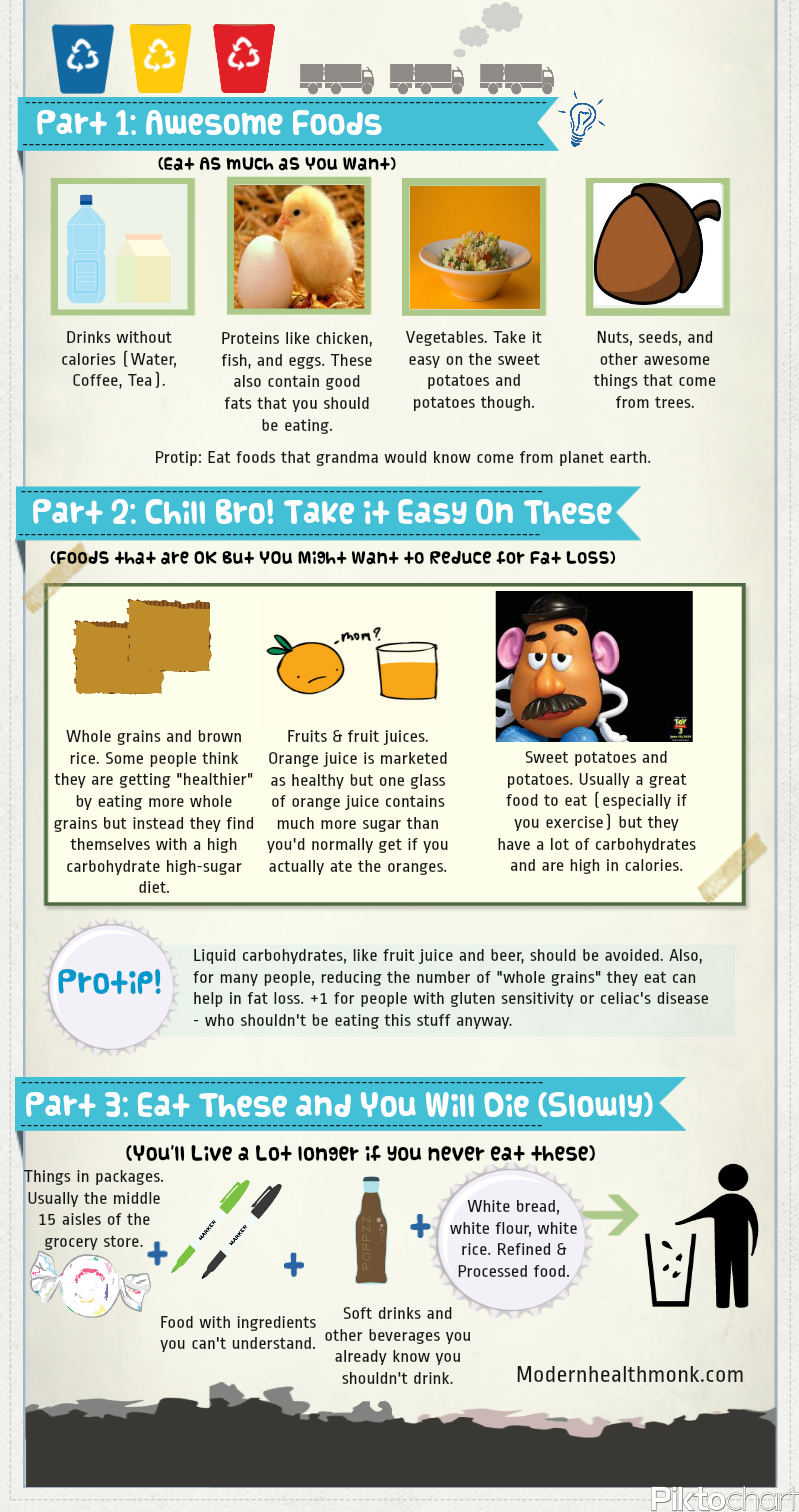
Part 1: Awesome Foods -Eat As Much As You Want, When You Want
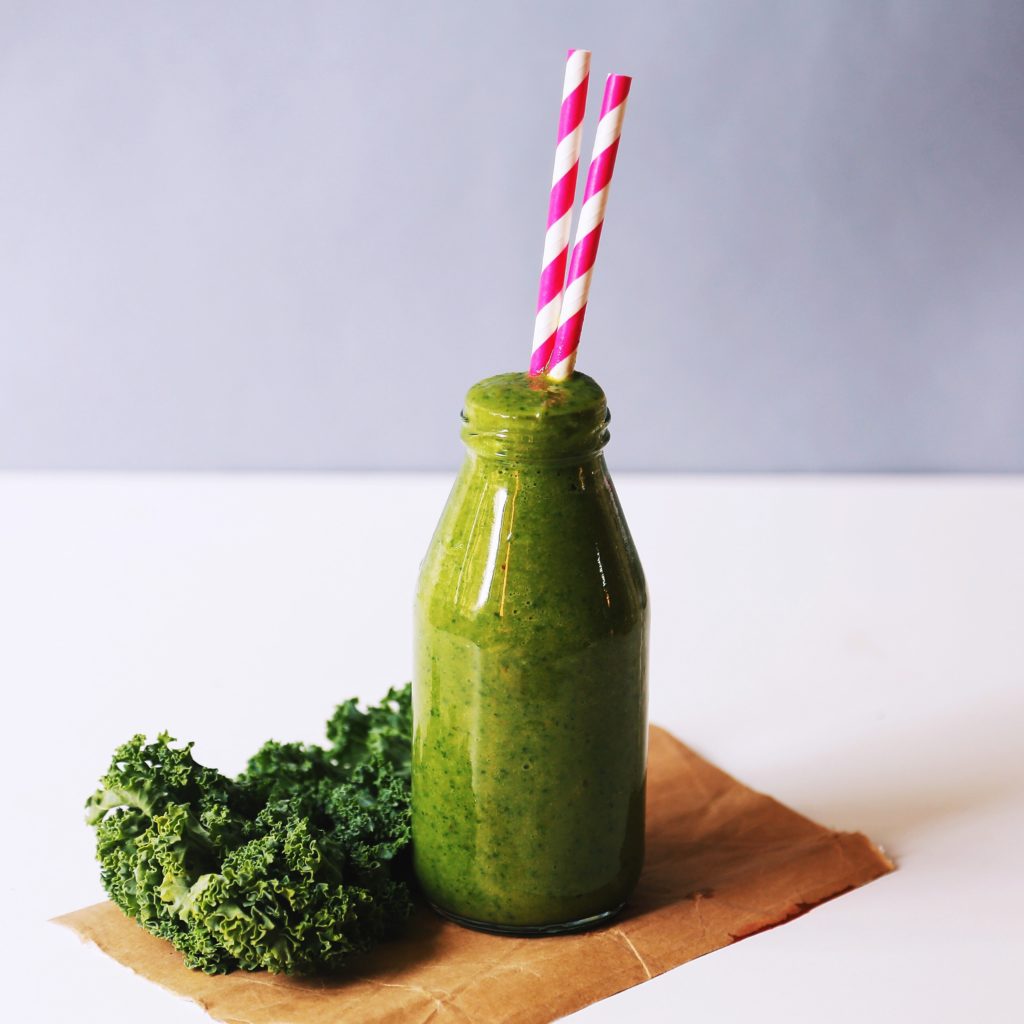
- Drinks without calories (Water, Coffee, Tea). I basically drink coffee in the morning, then drink tea and water throughout the day. Coffee is fine, but for some people it can cause that kind of queasy feeling in the stomach. Always drink it with food in your stomach, and not on an empty stomach. Coffee actually stimulates the stomach to produce more acid – which is normally fine in most people, but if you have tummy issues, you might want to cut down or drink it less strong (heresy, I know).
- Protein — Chicken, fish, eggs (Grass fed). Stick with grass fed meats and animal proteins because they are higher in the good stuff and lower in the bad stuff. Better Omega 6:3 ratios. Cattle tend to have their fatty acid ratios messed up when they are fed grain for too long.
- Vegetables – Eat these bad boys all day long.
- Nuts, seeds – A fantastic snack. Protein + fat = you feel full forever. They are high in calories though, so make sure you aren’t eating cupfuls.
Part 2: Chill Bro! Take it Easy On These – Safe to Eat Regularly But Reduce For Fat Loss:
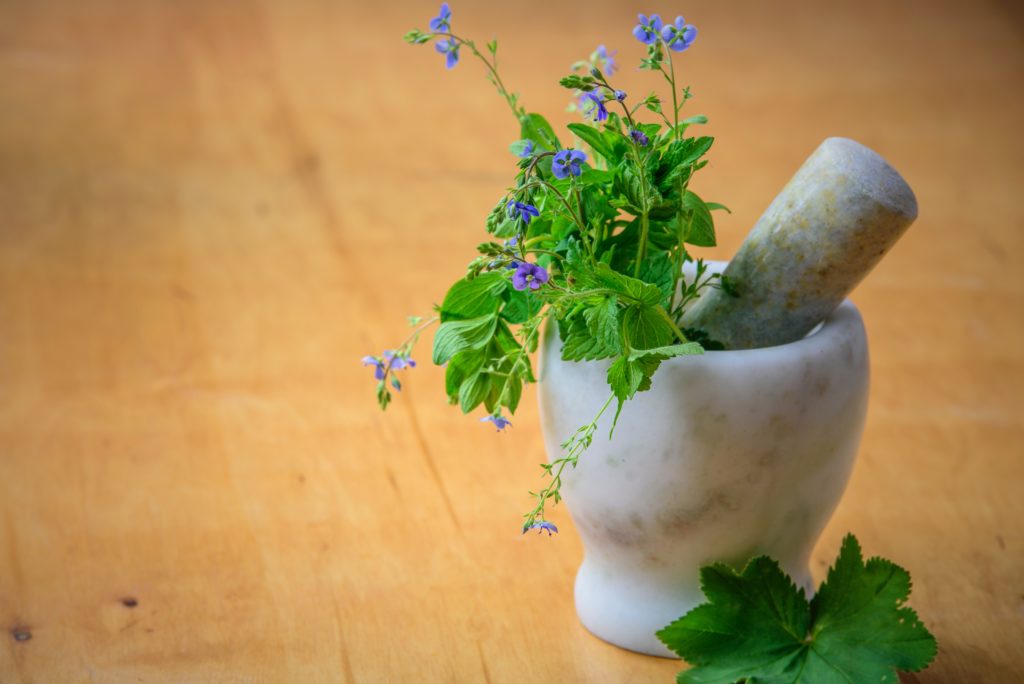
- Whole grains. Many people think they are getting healthy by eating vast quantities of whole grains, but in reality they’re finding themselves with a high-carbohydrate high-sugar diet. Also, many people are gluten intolerant and don’t even know it — I don’t eat any bread or pasta anymore because of this. It took me until I was 24 (and a lot of illness & medical testing) to find out. Sometimes you don’t know how good you’ll feel until you eliminate something.
- Brown Rice – If you are eating clean but still aren’t dropping weight (and you eat a lot of rice or whole grains) cut down the amount of rice.
- Sweet potatoes/potatoes – High calorie/carb. Fine normally, but for extra fat loss cut down on these.
- Fruits & Fruit Juices – Just get rid of fruit juices altogether, eat fruits sparingly
- Alcohol – Alcohol is fine to drink (don’t be an idiot…), but know that beer has more carbohydrates than wine. If you’re obviously out boozing alot and getting a spare tire, you already know what you need to do.
Part 3: Eat These and You Will Die (Slowly)
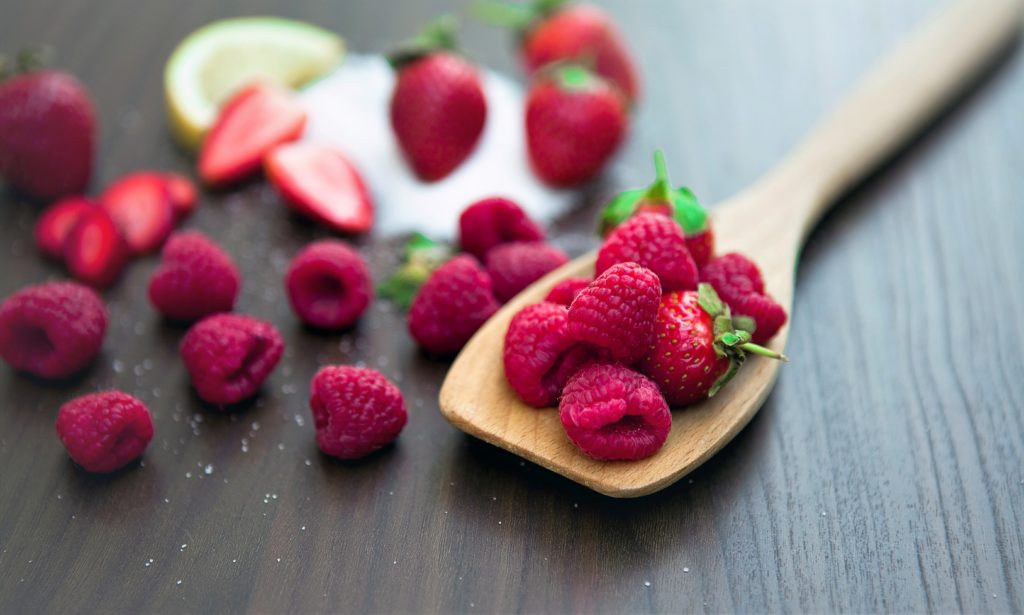
- Things in packages – This is basically the entire center of the grocery store. Aisles 1-15. All shitty “food.” I’m not even really going to go into things you should specifically avoid because I don’t want you wasting your time. Avoid things in packages as best as you can. The scary thing is that even foods marketed as “health foods” contain dyes, aspartame, acesulfame potassium, and many other things you don’t want to be consuming.
- Refined Carbohydrates – White bread, white flour, white rice. White things. Refined flours started out as whole grains – and then the husk and bran (all the stuff with nutrients, fiber, etc.) was removed. Then it’s bleached so it can be white. The same is true of white rice which is bleached then polished. White rice is a staple all over the world because it’s more attractive, shelf stable, and cooks quicker — not because it’s healthier or “more natural.”
- Obviously Fake Non-Foods – Things you know you should not be eating. Sodas & soft drinks, chips and packaged garbage, oreos and milanos (save those just for break-up times.)
No Starvation, No Calorie Counting, No Hunger.
I want to bring up one key point here, as to why I’m so against the low calorie movement (which doesn’t work, anyway) — if we naturally ate what we wanted, when we wanted, until we were full, but we still gained weight and got fat, how would we still be here as a species today?
This is why I want to draw you to the idea that “it’s not how much you eat, it’s what you eat.” Let’s face it, if cave men were chomping down on doritos and pasta 2 million years ago, we might not be here today. Or we would be born diabetic with never before seen rates of Cancer and heart disease.
Calorie restriction doesn’t make sense though – because how would people before us have known what to each – and how much – without digital scales, charts, guidelines, dieting advice, etc.? They didn’t have all that. They just ate when they felt hungry and ate until they didn’t any longer.
Usually when people transition to eating real food, they find themselves eating until they’re full but still losing weight. That’s how it’s supposed to be.
Fortunately, reducing calories, counting calories, splitting hairs & cutting down on fat are not a part of this lifestyle, because they don’t work.
Eat Food When You Want To
One of the key things is that you will eat when you want, you will feel full, and you will still lose weight.
“What!? How is that possible!!” You might ask.
“Real food” is often 1/10th the caloric load of fake food you find in the center of the grocery story. It also is often naturally low-sugar, and (sometimes) low-carbohydrate.
Remember how protein and fat naturally keep you full much longer than carbohydrates or sugar and thus reduce overeating?
You would have to eat an immense amount of protein, fat, and plants to get anything near the same caloric load as a bag of chips or a large candy bar – but you’ll stay full WAY longer. Plus it’d be nearly impossible to eat that much protein because of how quickly it signals to your body that “it’s full.”
Part 2:How to Dominate Your Food When You’ve Tried Diets Before But Failed (Sticking to Any Diet 101)
All “dieters” make the same mistake. Actually, just about anyone trying to make or break a habit makes the same few mistakes:
- Starting too much, too quickly or doing things that require overcoming too much inertia (effort)
- Not seeking to understand the “why” behind the habit (remember how I said I became a creepy regular at a coffee shop for over a year, and realized I didn’t actually want coffee, I just needed social interaction? Sometimes you don’t actually want the coffee.)
- Not understanding how to properly break habits
So let’s talk about this more, because this is the most important part of this entire article
#1 Starting too much, too quickly.
Why is it that every dieter, upon the first week after the new year, goes to the gym for an hour, or sometimes two hours? The past few weeks at my gym have been packed with young college guys lifting weights, who are trying to look like they’ve been lifting weights for years and years (But obviously just started). They’re throwing huge weights over their head, struggling, and almost losing control. The same is true for the dieters that say “I’m going to do 5 hours a week on a treadmill, starting from week 1!”
Stupid. It’s too much. It’s like yin and yang — have you ever noticed the friends that are very “fiery” about activities or relationships — jumping in obsessively and investing an unnatural amount of time upfront — are much less likely to stick with it later on? I know you may be excited, I know you might have just watched that 5 minute motivational youtube video, but curb your enthusiasm for a hot sec in favor of creating sustainable habits.
How you fix it:
A. Reduce Effort & Inertia. Start off with the easiest, smallest change possible that takes the least effort. For example, working out at home takes less activation energy than driving to the gym to workout. The farther your gym is, the less likely you are to go to it. That’s why I’m a huge advocate of home workouts if you’re motivated to already workout. For dieting, many people complain about cooking their own meals. So instead of cooking every night, just cook two nights a week. On Sunday I’ll usually cook 3/4 of my food for the week. Or forget cooking. Just focus on eliminating soda or fruit juice from your diet… only on Mondays. Easy enough right? You can binge again Tuesday. Gradually increase this to include more days.
B. Make The Smallest, Most Effortless Change. Instead of going to the gym for an hour that first day, if you’re lifting weights, just do 5 sets (total). That’ll take 20-30 minutes. Or do 5 minutes of cardio. That’s it. It should feel easy. The point is to start low and then consistently increase the amount of time or repetitions. You want to keep your gym experience as consistently enjoyable as possible. When I started meditating as a kid I never started with an hour on the first day – when you surpass your skill level you just end up feeling discouraged. I meditated for one minute the first day, and then increased it by a minuscule amount of time every day.
C. Stay in Flow. Flow, as described by Mihaly Csikszentmihalyi, is the state where life is often more enjoyable for us. We feel challenged but alert, aware, and alive. We feel like we’re growing. Based on several decades of research, Doc. C found that the best way to stay in flow was to take up an activity or hobby that falls somewhere between boredom (too easy, not enough of a challenge) and anxiety (way too hard, discouraging, this tennis player is kicking my ass). In other words, your exercise should be “just right” (like Goldilock’s porridge). It shouldn’t be so long or hard it’s discouraging and you never want to go again, it also shouldn’t be so easy that it’s boring. In other words, you should be having FUN. This is the secret to staying engaged.
#2 Not understanding the “why” behind your habits
For over a year I was a creepy daily regular at a coffee shop. The interesting thing was that I was never a big fan of coffee in the first place, but still I managed to crave this daily experience. After about a year of hanging out there daily (and getting to know everyone working there), I observed another creepy regular. This creepy regular had the habit of snooping on people’s conversations and interrupting them like a needy child, so he could get some attention. And then I thought “Mother of God, that’s me!”
I realized that I was actually craving social interaction by going to this coffee shop every day. My day job was on the computer (so I had zero social interaction), and I moved to a new area (so I had zero friends), so I was totally starved of people. It took me a year to realize why this habit had subconsciously formed.
I already wrote an epic guide to understanding habits, and using habits (not willpower) to change your lifestyle (and life). But I want you to sit down for just 30 seconds and think about two scenarios — the afternoon work snack and the midnight snack.
These are two times of the day I noticed myself snacking a lot and looking for something sweet. The first, the afternoon, was around one of the quietest parts of the day at work. I was looking for something to do, would get bored, and would go upstairs to eat a cookie. At the time I didn’t realize that I was bored and just wanted something to do – I thought I was actually having cravings. But when I sat down for just a second and asked “Wait, am I doing this because I’m bored or because I really want a cookie?” I realized I was just bored at work. Going for a walk or getting some fresh air worked just as well.
This kind of self-awarness is the skill to have when you’re trying to improve your life or make/break habits. Without self awareness it’s almost impossible to realize why we do things when we’re doing them.
#3 Not understanding how to break bad habits
Go check out my post: Why All Diets Fail And Why You Don’t Need a Diet to Lose Weight. I provide a bunch of examples of how to utilize the power of habits to change your diet, start a fitness routine, and break bad habits that have been plaguing you for years.
The secret to breaking bad habits though, lies on one formula:
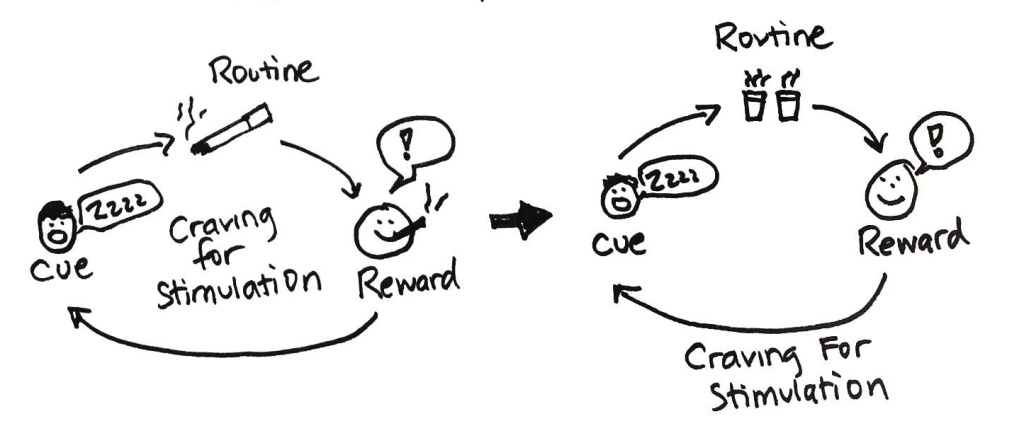
Remember the three parts of every habit: the cue, the routine, and the reward.
Bad habits truthfully are very hard to permanently eliminate. Instead, the way to get rid of them is to replace them with a different routine:
- Keep the same cue (in the example above – feeling tired and bored).
- Change the behavior (in the example above – grab a coffee, instead of a cigarette)
- Keep the same reward (Yay! Awake and not bored anymore)
Okay, I Understand I’m Supposed to Create Habits Instead of Using Willpower — Any Other Tips to Make This Easier?
Oh yeah, and there’s one other HUGE tip.
Go with the 80/20 rule. The 80/20 rule basically states that 80% of your results will come from 20% of your actions. In other words, it’s a method for minimal effort, maximal return.
You don’t need to eat perfect 7/7 days of the week. Is that ideal? Yeah. Is it realistic and possible for most of us? No. Here’s how you account for that.
Putting the 80/20 rule in action. The first way to implement this 80/20 rule is, on certain days, begin changing your habits and switching to a better diet. For example, Monday-Thursday you are going to begin employing the dietary habit changes (see above), and first eliminate all fruit juices for Month 1 (Just for Monday-Thursday). Month 2 you are going to eat a protein breakfast first thing upon waking up (just for Monday-Thursday). Fri-sunday are still cheat days for those months. Go crazy. Eventually you can extend this rule to include 5 or 6 (or 7) days of the week, so that 6/7 days you are striving towards better dietary changes, and one day you can go crazy on the milanos.
The whole point behind this is that you don’t need to eat a perfect diet all the time to see amazing results. And in fact, striving for perfection and the 7/7 days of awesomeness will probably set you up for failure.
Remember, the best “diet” is the one that doesn’t feel like you’re dieting. Make the necessary adjustments.
I’m Overwhelmed, Can You Simplify It For Me? (5 Easy Actions)
Alright, to sum up this entire article into a couple key points would go something like this:
- Eat protein within 30 mins of waking for breakfast. Even though there’s only weak evidence linking eating breakfast to a lower BMI, I suggest eating breakfast to help maintain a more stable blood sugar which will prevent sugar cravings. Why protein? Same thing – it keeps you fuller, longer. I usually eat 2-4 oz of chicken, 2 eggs, some cashews, and then sometimes orange juice (with protein powder).
- Avoid all liquid calories, especially fruit juices. Liquid calories don’t leave you as full as solid calories so it’s much easier to consume a hell of a lot more. Liquid carbohydrates are also more fattening than solid carbohydrates because of their quicker effect on blood sugar — yes that includes fruit juices too. Fruits are fine, as long as you’re not eating 5 oranges a day.
- Eat some protein & fat at each meal. They will keep you full and highly reduce the chances of over-eating. I eat about 4oz of animal protein (or fish) every single meal.
- Absolutely no white carbohydrates. See explanation above.
- Use the 80/20 rule – keep one (or a few) cheat days. It’s much better to adhere to a the diet 80% of the time (and you’ll get results) rather than adhere 100% of the time for a while and then relapse.
Kick Some Ass And Let Me Know How it Goes
That’s pretty much it — have any questions? Hit me up in the comments below.
— Alex

Hi Alex, what healthy foods containing protein would you suggest for me to eat in the morning (breakfast) considering the fact that I’m allergic to eggs and due to my current $ situation I can’t afford to eat chicken or fish everyday? Thanks a lot!
Hi Mon!
Do you have any nut allergies? I have friends who eat nuts in the morning in addition to some other foods to help fill them up.
— Alex
Hi Alex
You’ve got my attention about fiber. I have been suffering with the same symptoms you experienced. I ate very healthy .. ate all of the so-called healthy high fiber foods. I had a colonoscopy and they found a ulcer. In your opinion,
can I heal this ulcer with a low fiber diet? I suffer from constipation and found the
only thing that works is drinking a magnesium citrate drink once a day.
Please give me a sample of what to eat for
breakfast
lunch
dinner
Thanks for your time
Gerry
Courtenay, BC Canada
Hi Gerry,
To be honest, you should see your doc regarding healing that ulcer. Since you have something physically going on there, you need to deal with that first. This is mostly in reference to people with functional constipation, e.g. everything is technically “fine” inside, but you’re still constipated.
I would work with your doc (& potentially an integrative doc/health clinic) to get that sorted out first.
Best,
Alex
Love how you threw in some ~Flow~! HUGE fan of Flow….I try to stay in that state in every aspect of my life!
Great article…very straightforward. I think the hardest thing for people is discerning what food to eat. There are way too many experts and studies contradicting each other.
I do have a question…What about sugar/sweeteners (ie.,organic raw sugar, agave, honey, stevia)? I CANNOT (will not) drink my coffee black!
You also didn’t mention anything about dairy (half & half *for my coffee, yogurt)
Hi Katrina !
Me to I love Flow! It has changed my entire life.
I agree, there are far too many studies contradicting each other – so I try to stick to something logical that makes sense – eat things that obviously come from this earth – plants and animals.
Kinda sit back and think about what the natives of each continent would have eaten, and it becomes a little more clear.
As for sweeteners: I think you already know the answer 🙂 – the less sugar, the better. Even natural sugars like raw sugar, agave, honey, etc. are still sugars that will lead people down the road to diabetes if you are eating them in excess. I personally stay away from them, but if you want your coffee to stay sweet that’s up to you !
Re: Dairy, I don’t eat it just because I’m lactose (you won’t want to be in the same room as me..), but In studies it seems to kinda fall into the “neutral” category in moderate amounts.
Hope that helps at all!
— Alex
I have always eaten something sweet or salty just before going to bed, since I can remember. Here’s my problem now…I try to eat a healthy dinner 3 hours before bed, so that might be 6-pm. When 9:00 rolls around I’m hungry again! My usuall thing to do was reach for cookies, chips, or dessert right before going to sleep. And it always helped me to sleep better. What can I eat now in place of that sugary, salty indulgence I ritually in gaged in? Going to bed hungry isn’t going to help me get a good sleep, nor is drinking water (in case my body is dehydrated) I’ve tried that and every single time, it’s hunger and not thrust or boredom. I have a huge addiction to sugary foods. Desserts are my downfall.
Hey Liliana,
Eat another meal. Getting too hungry is one of the top reasons why people get sugar cravings. If you really want to just avoid eating a meal – eat a high protein high fat snack. Nuts, a small piece of chicken with some avocado, or just another meal will significantly help with that, I guarantee :).
Some other articles that might help you: http://modernhealthmonk.com/why-all-diets-fail-habits-101/
And this one on emotional eating: http://modernhealthmonk.com/emotional-eating-food-addiction/
I also have an upcoming class on controlling food and mastering emotional eating if it interests you. Watch this quick video: http://modernhealthmonk.com/one-size-fits-all/
Hope those help!
Best,
Alex
I’m not exactly sure I agree with you about rice. Japan has the longest expectancy in the entire world and basically all they eat is rice (specifically white rice).
Hi Arga,
Thanks for your comment.
Technically, “all they eat is rice” is not true, at all. They eat tons of vegetables, fish, sweet potatoes, smaller portions, move more, and in general are closer to the rules for “optimal” health than most westerners are. Also, the focus of the meals is typically the veggies and protein source, rather than rice. Most japanese aren’t eating 2 bowls of white rice with each meal.
I’ve also lived in China and observed the same – rice is served with every meal but it’s not the focus of the meal.
As any westerner who has been to Japan can attest, their meals are MUCH smaller too. Almost too small by western standards. If you’re eating a lot fewer calories, even if you’re eating rice you can stay thin and avoid diabetes and the other perils of being overweight.
Hope that helps answer some questions.
Best,
Alex
Well obviously I wasn’t being literal when I said “all they eat is rice”, though they do eat quite a lot of it. And yes, I’m aware they also eat quite healthily besides rice, but I think to list white rice as “stuff that’s slowly killing you” is really quite extreme. Rice (white or otherwise) can be part of a healthy diet and lifestyle.
Hello Alex,
Just wondering if you have heard of this low carb diet plan?
http://authoritynutrition.com/
I looked at many of the dishes and this looks like something worth getting more information about. Also stresses no juices, soda, and nothing WHITE.
Just curious about what you might think about this.
Thanks!
Jim in Jax, FL
Hey Jim,
Kris over at Authority Nutrition is a smart guy. We’re in agreement on 99% of the stuff he talks about.
HOWEVER, I agree with going moderately low-carb but it’s not for everyone. For example – I know of at least a few women whose period stopped when they went Paleo/low carb and started experiencing health & menstrual issues. Upon reintroducing sweet potatoes to their regular diet, their health went back to normal.
So if you can thrive on low-carb and you aren’t suffering adverse health effects, go for it. IMHO the plants/little bit of protein/good fats is the healthiest diet on earth.
Hope that answers your questions!
Best,
Alex
Hey, I really love your ideas about fiber and I completely agree that its a load of garbage when it comes to curing constipation. Fiber may PREVENT constipation in some people, but it definitely does not CURE it. I would just avoid it entirely…but anyways, I was wondering, do you think food combining has anything to do with becoming constipated?(i.e. not eating proteins with other proteins such as eggs with bacon or not eating breads with proteins such as a chicken enchilada?) I also hear you are’nt supposed to eat milks or fruits with anything else or it can mess up the digestive system and cause constipation, but how am I supposed to do that when even a healthy protein smoothie can contain both milk and banana?
Hi Alyssa,
Honestly I don’t know anything about food combining and/or it’s link to constipation. Sorry! I also don’t know how much science there is behind food combining.
– Alex
I really like the fact that when you don’t know something you say so. There are too many so-called health experts on line who think they know everything and don’t. Even doctors don’t – they study very little nutrition as part of their medical studies and what they do learn is out of date very quickly.
Your video links are no longer available. 🙁
Hi Aura,
Just updated it!
– Alex
Hey Alex,
I agree with everything I’m reading here. My boyfriend lost 90 pounds doing paleo and I have about 50 pounds to lose and thought I might try it. I log my food daily in my fitness pal as more of a way to track and look back on what I’m eating because I’ve been having a difficult time losing weight.
I decided not to go “paleo” necessarily because I will occassionally have a little dairy or something like that and don’t believe in being that strict on “eating what the cavemen eat” because there are so many things different about the day and age we live in today. Anyway, I mainly eat clean, lots of veggies/fruits and protein. I stopped eating all white carbs… haven’t had a bite of bread in about 3 weeks. I drink over 70 ounces of water a day and exercise a minimum of 3 times a week. (Have a look at myfitnesspal diary if that helps) I just haven’t lost a pound.
It’s only been 3 weeks but I would think that cutting out ALL bread/rice when I used to eat sandwiches frequently for lunch, and regularly exercising would shock my body into losing weight but I’ve not lost a pound. (I only drink water) Also, I got to this article by reading your pooping article because I have no problems with pain or constipation but just have noticed that I hardly ever poop. Over the last 3 weeks I’ve eaten only meat, fruits and veggies and have not pooped more than once every few days (as per usual..) pooping habits have not changed with my “diet” or healthy eating.
Any suggestions?
Hey Stacey,
Hmm that’s interesting regarding your GI stuff. Has this always been your regular routine? And when you do have a bowel movement, do you have to strain?
Alex,
I just have to ask you, where is your monastery? How did you choose “Modern Health Monk” for your site?
I read every word and every comment on you orange juice article. It is excellent, contrary to many of the comments. I can say, from experience, that large amounts (1-2 qts a day) of fresh, squeezed orange juice nearly killed me. I had gone on a fresh vegetable juice fast to loose weight, but was out of town for a week and only has access to fresh orange juice. After a week of consuming nothing but delicious fresh squeezed orange juice, my throat felt strange and I began having trouble swallowing. Thankfully, a friend sent me to a wholistic doctor. It took seven days for the only appointment he had. He said to eat absolutely nothing but fresh, organic, romaine until he could see me and to take him a sample from my first urine of the morning. I was his first appointment, a spot he usually reserved for his regular patients. After he tested my urine, his first comment was: “Young lady, what have you been doing?” My reply: “Exactly what you said. Romaine only since I spoke with you.” He then exclaimed: “You are a very lucky woman! Had you gone to any emergency room, you would be dead today!” He explained that he had never, in all his many years of practicing medicine, seen urine so high in sugar. Any emergency room would have started me on D5W and that alone would have killed me. He then put me on a very strict regimen, which I followed, to get my body back on track.
I am impressed by your patience and gracious responses to comments and questions. What amazes me about most of the people who respond to articles such as those you write, is that they either don’t understand plain English, or they don’t read well enough to get the message straight. Many questions only require common sense answers. Some comments are rude or ignorant or both. Do people really not understand the difference between fresh fruit juice and bottled? The medical and commercial establishments really do have the general population buffalowed!
Hi Ruth,
Wow what an amazing story! You are quite lucky indeed, good thing you got everything sorted out in time.
As to the name – I’m not sure – people describe me as a cross between a monk and a doctor, so I think that’s how the name came. I also wanted to show people that “modern health” is much different from health previously in history.
Thank you, I appreciate this. I think very few people get what I’m trying to say, so maybe I need to do a better job of communicating. You would be surprised how hostile people can be to a total stranger! Says a lot about the world we live in today.
Best,
Alex
I’m sorry… I’m Nigerian and white rice is a staple in what we eat. I can honestly say that most Nigerians (who eat that “deadly” white rice) live much longer than Americans do. You might want to retract that statement and perhaps suggest eating these things in smaller quantities, which is really the main problem we have in America.
Hi Amara,
The World Health Organization statistics from 2013 say that average life expectancy in Nigeria is 53.7 years for men and 55.4 years for women. The average life expectancy in the USA (both genders) is 78.7 years. Statistically, most Nigerians do not live longer than most Americans.
Of course, this doesn’t necessarily suggest that the American diet is responsible for longer life expectancy because correlation does not equal causation.
All the best,
Anne
Well I am also Nigerian but contrary to what Amara has said above about “most Nigerians live longer than the average American” – I don’t know that there is any statistical evidence to prove that…it is certainly not a plus that we eat so much white rice. I am watching people become overweight very quickly on a daily basis. Mostly around their guts – high LDL levels around there.
Insulin resistance is increasing steadily with each generation – before the days of imported processed rice we ate mostly yams, potatoes, cassava and wheat based food. Healthier carbs. Almost 90% of the food we eat is organic and has no fructose corn syrup (which is in everything in America). Our fruit hasn’t been scientifically “improved” in away to increase sugar content. We also eat a ton of veg, meat and very little dairy. People generally move around a lot more. Just as you said with Japan – white rice in small quantities works when you are willing to make all the other life style changes. But honestly there are so many other (and perhaps better?) alternatives out there. Get rid of the white processed carbs period.
In summary, great article!
Hi. Thanks for all the insightful information your giving me. I have one question. Where does milk fit in, I love drinking milk, is that fine or should I rather not?
Thanks so much
Yvette
Hi Yvette,
Personally, I avoid all dairy – but if you’re not consuming tons of it I wouldn’t worry about it. Also, if it doesn’t bother your body (e.g. lactose intolerance), you should be fine.
I know that you say you avoid all dairy. I am interested in what you may have to say about Kefir. I’ve read lots of articles including those in the Weston Price articles that Kefir is very good for you for increasing the good gut flora and decreasing the bad gut flora. What are your thoughts on that?
Hi Janet –
I’m a big fan of fermented foods. Ultimately, see what works best for you and how your body tolerates it.
Alex, This sounds a lot like whole 30? Eat vegetables, water, meat, nuts & seeds. Except maybe they say cut out all fruit and you say a little is ok. One thing I’m noticing is you don’t mention dairy at all, either eat, minimize, or avoid it like the plague. Dairy is a huge food group for most people eating a typical Western diet. Including myself. Organic, grass-fed and raw dairy is what I have learned is the best type to consume, if you are going to, or making your own nut milks (to avoid extra ingredients) or using coconut milk.
Hey Leila,
Whole 30 is really just a typical strict paleo diet. I personally avoid dairy since i’m lactose, but if you tolerate it, go for it 🙂
Terrific advice. I have to laugh because I am one of those people that researches everything. Too many options causes too much confusion. Your advice is SIMPLE and easy to follow.
Hahah, don’t worry I do the same! At the end of the day, it comes down to action though.
So, I’ve heard that you crave salty food when you’re stressed and sweet food when you’re sad (or something along those lines). As a student, I find myself craving chips (or any other kind of salty food) all the time, especially on days where I’m running on 5 hours of sleep or less…any suggestions?
Hi, I have a question. Why do you think it is better to eat less carbohydrates? What do you think of the hclf diet? I have seen lots of good results :/